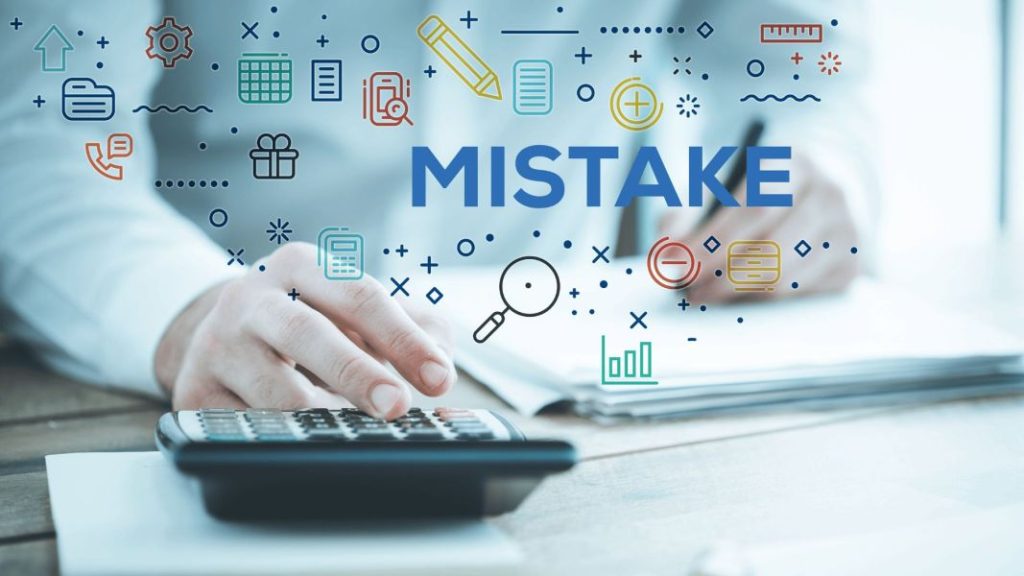As a business owner, you learn to juggle many things at once. Add selling your business to the mix, and it’s quite easy to make a mistake or two. There are so many things to consider in a business sale that it’s easy to miss something, especially if you don’t have help. Thankfully, many business owners before you have made mistakes that you can now learn from. So, what mistakes should you try to avoid?

1. Not being prepared
Preparation is key when it comes to selling a business. Business owners who enter the sales process have to scurry to sort out their paperwork, financial statements, tax reports, or even employee contracts, putting themselves on the back foot from the start. Ideally, before you approach a broker to start the sales process, you should try to have all of your paperwork in order.
This includes keeping your financial records up to date and your business history well-documented so they are available when requested. Likewise, if you have any legal issues pending, try to deal with them promptly. No business investor will buy a business staring down the barrel of a lawsuit. Here’s some of the paperwork you may want to have ready:
- Financial reports
- Tax returns
- BAS statements
- Asset list
- Business valuation report
- Lease agreements
- Employee contracts and details
- Supplier and customer contracts
- Licences and permits
- Business registration details (ABN, business name, etc.)
- Confidentiality agreement (NDA)
- Contract of sale
- Franchise agreement (if applicable)
- Loan and finance documents
- Insurance policies
- Intellectual property documents (trademarks, website, etc.)
- Handover guide or operations manual
2. Not considering appearances
First appearances matter. Think about it like this. If you drive past a house with paint peeling off the walls, clear structural damage to the walls and foundations, and an overgrown yard, would you want to buy it? The same principle applies to businesses. Suppose the business looks like it is running terribly. In that case, the grounds are horrible, the offices are unkept, and its public image is tarnished, so it won’t look appealing to a potential investor.
The image of your business is going to be the first hook you’ll use to land a buyer, so you want to make sure that the business is presented well in all circumstances. From the appearance of the buildings, offices, and staff, to how the business operates and its reputation.
3. Asking for the wrong price
Nothing will turn potential buyers away faster than an overpriced business valuation. If you market your business at a price over its value, you may sit for months or years before you get a reputable buyer.
It’s common for business owners to make this mistake, especially since they’ve probably poured much of their time and money into growing the business to where it is. However, one needs to be realistic. Having a business broker valuation your business is the best way to come up with a competitive and realistic price.
4. Using guesswork to determine the value of the business
Following the last mistake, we often see business owners also guessing the value of their business based on their sentimental attachment and the amount of money they’ve put into it. Granted, you want to get a return on your investment. But think of it this way: If a car’s market value is $20,000, and you give it a service for $500 and put new wheels on it for $700, can you sell your car for $21300?
No, its market value remains the same regardless of your invested maintenance costs. A similar principle applies to your business. To increase its worth by investing in it, you need to buy tangible or intangible assets that add to its value. Again, having a professional do your valuation will give you a more realistic idea of your business worth.
5. Trying to sell your business alone
There’s a reason business brokers exist, and it’s because trying to manage the sale of a business and run your business at the same time is challenging. Business brokers take the time factor out of it. They take over the sale of your business, allowing you to use your time and effort to improve your business and optimise what you get for it. Business brokers earn commission based on what your business sells for, so their incentive is aligned with yours to get the most realistic price possible for your business. Here are some of the services a business broker offers:
- Business valuation
- Marketing and listing
- Buyer screening
- Negotiation support
- Due diligence coordination
- Sales documentation assistance
- Confidentiality management
Where can you hire a good business broker?
Ideally, you want the right business broker in your corner to help sell your business. This includes someone who knows your industry, has a good reputation, is versatile, and has a proven track record. We recommend Lloyd’s Business Brokers. With a reputation for its quality and consistent services, Lloyd’s has the experience and expertise to handle any business sale professionally. Give them a call, and they’ll help you start the process.
Final thoughts
Selling your business doesn’t have to be difficult, and the good news is that you can avoid making some of the mistakes that others have made above by simply being cautious and taking the time to make sure you do things right. Plus, if you have a business broker in your corner, the risk of making costly mistakes is reduced significantly. Consider the mistakes above and remember them for your business sale.

Founder Dinis Guarda
IntelligentHQ Your New Business Network.
IntelligentHQ is a Business network and an expert source for finance, capital markets and intelligence for thousands of global business professionals, startups, and companies.
We exist at the point of intersection between technology, social media, finance and innovation.
IntelligentHQ leverages innovation and scale of social digital technology, analytics, news, and distribution to create an unparalleled, full digital medium and social business networks spectrum.
IntelligentHQ is working hard, to become a trusted, and indispensable source of business news and analytics, within financial services and its associated supply chains and ecosystems










